First FF4EuroHPC Open Call in numbers
15 June 2021
The FF4EuroHPC first Open Call for experiments did receive 68 high-quality submissions involving 202 partners from 25 European countries (plus Canada). Of these, 16 were selected for funding in an evaluation process involving 37 external reviewers, and the experiments are starting as we speak. The amount of funding allocated is € 3,022,317.
Country Statistics
Submitted experiment proposals came from a very nice spread of European Union Countries, as shown in this treemap (area corresponds to the number of countries).
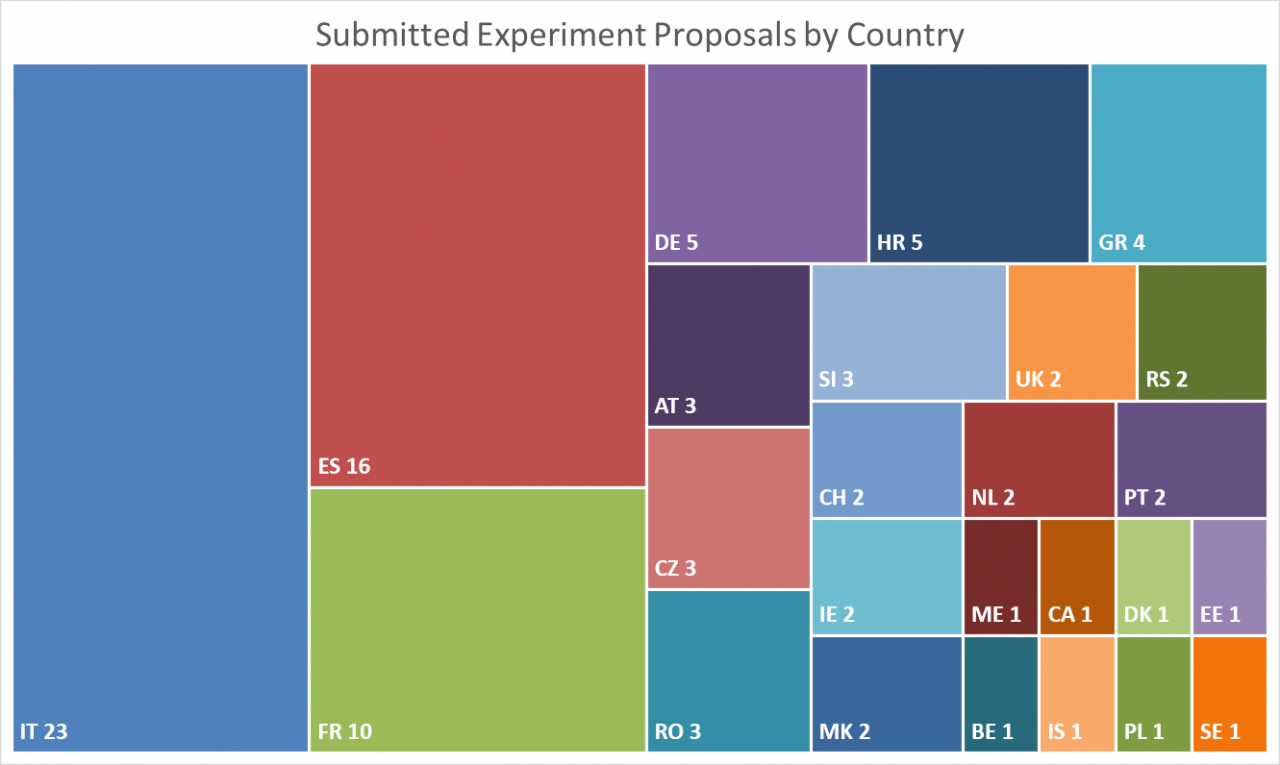
In total 53 partners from 9 countries take part in the selected experiments.
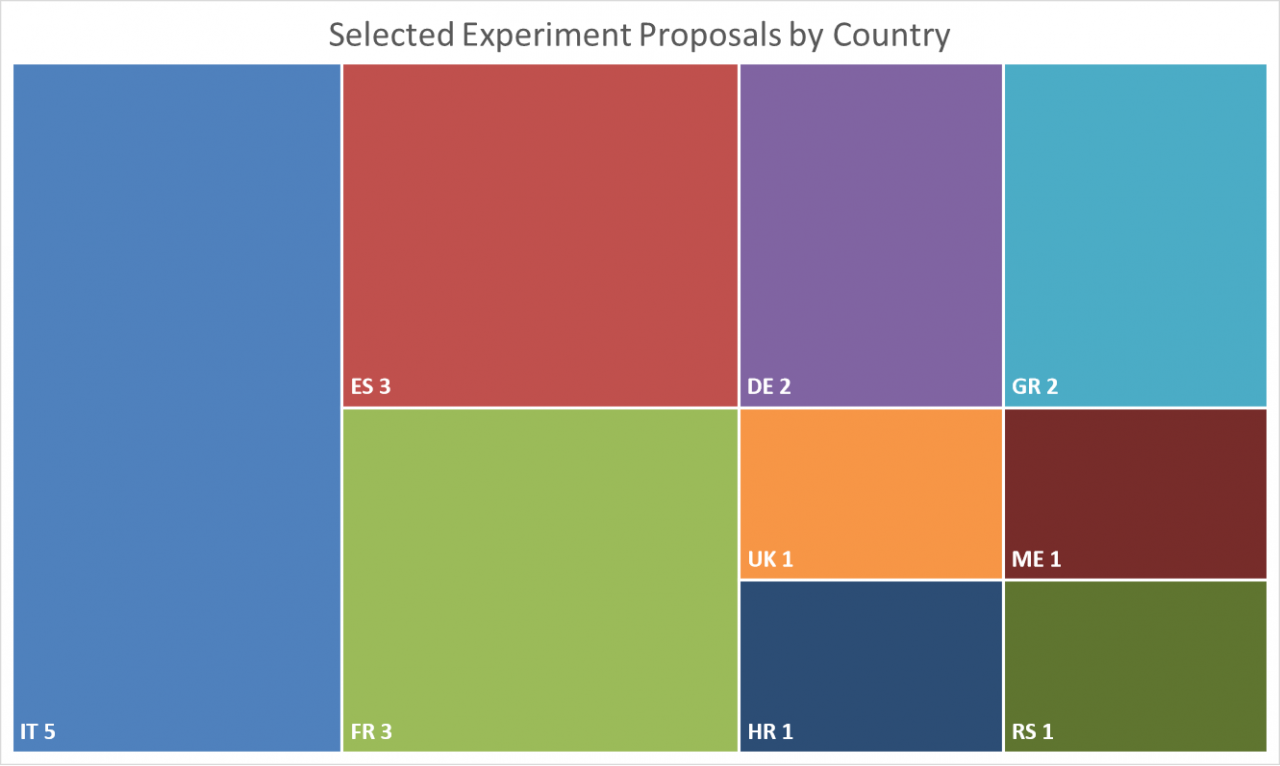
Distribution of Funding
The funding for the experiments selected in the first FF4EuroHPC Open Call is distributed across countries as shown below.
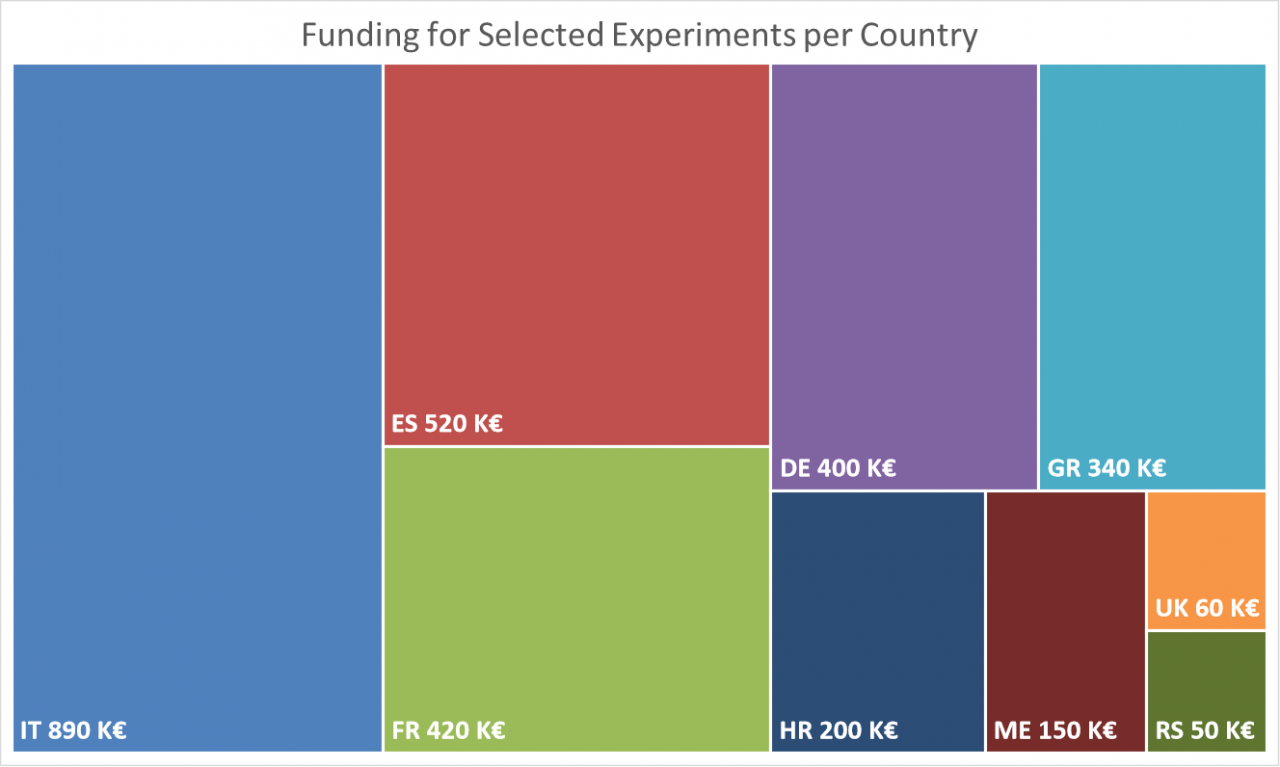
Small and Medium Enterprise Participation
Of the 53 partners participating in the selected experiments, 27 were small and medium enterprises (SMEs). The “sunburst” chart below shows the distribution between SMEs and “other” participants (which can be academic/public organizations such as HPC centres or universities, or large companies) per country.
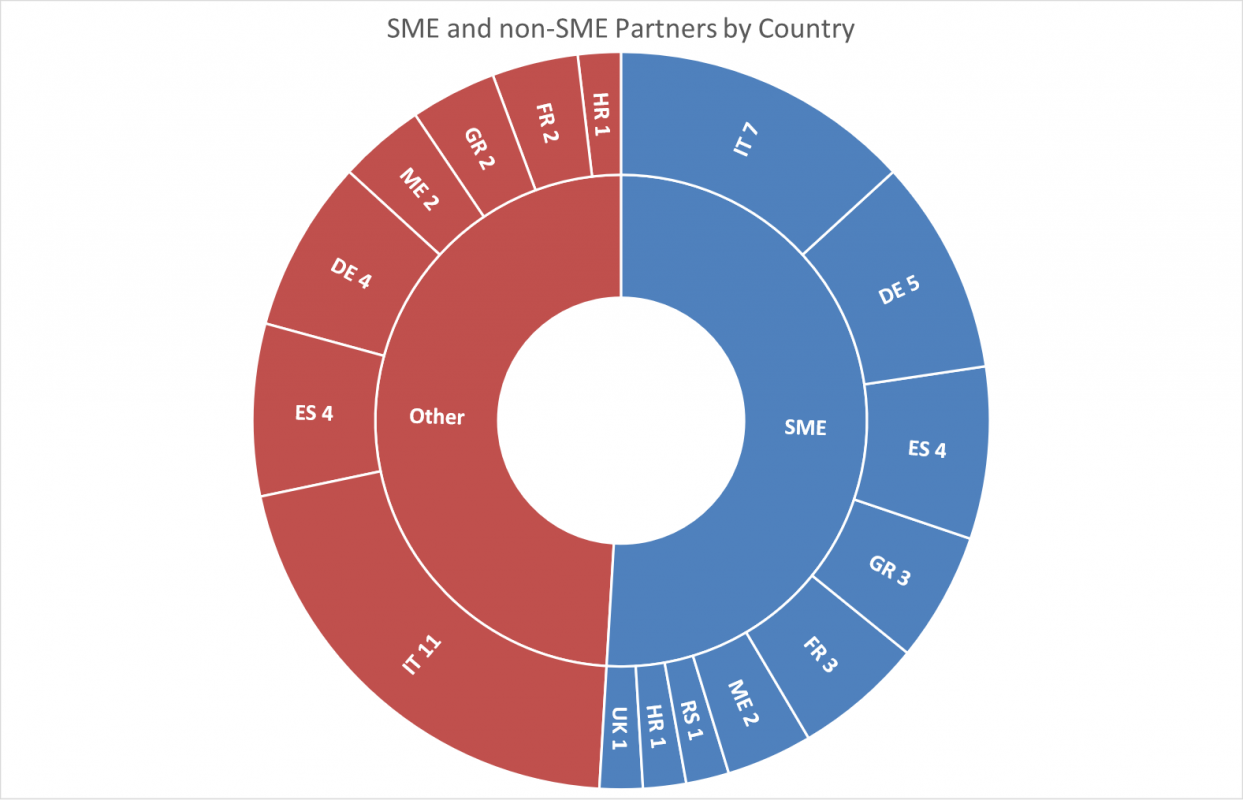
End-User Domains
Each FF4EuroHPC experiment targets a specific economic end-user domain, and is designed to accelerate innovation and create business value in that domain. Across the 68 proposed and 16 selected experiments, the end-user domains targeted are illustrated in the sunburst figure below, with “Other” referring to the proposed experiments not selected.
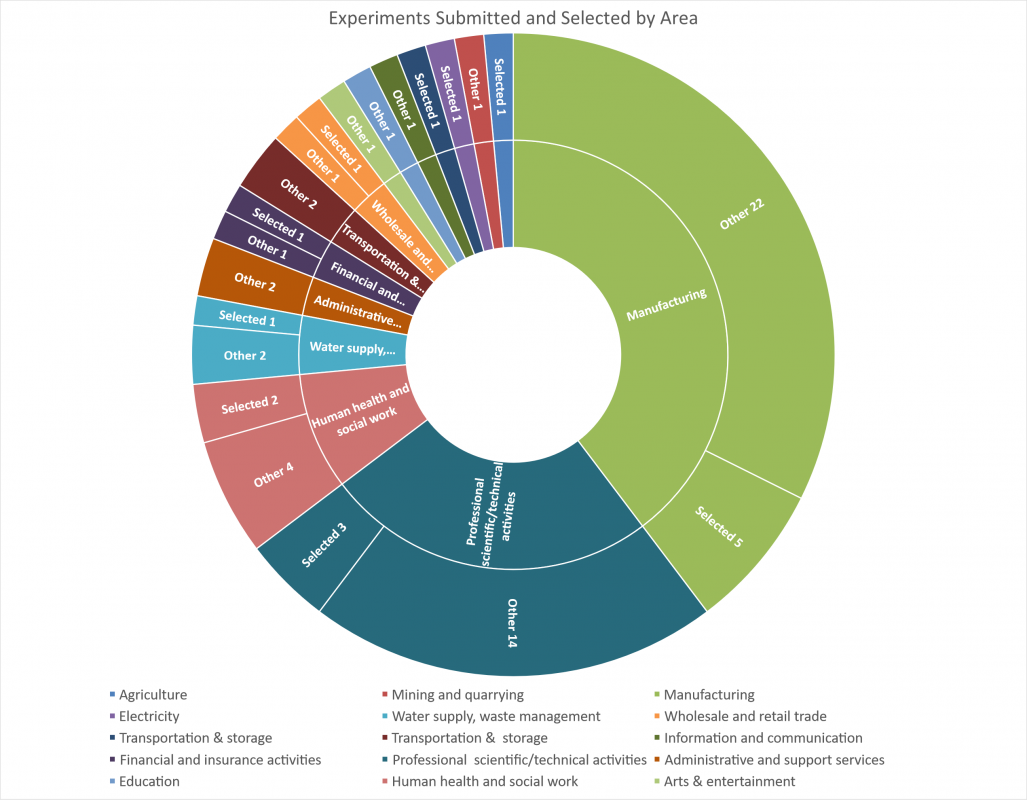
HPC Application Fields
Of the 68 submitted experiments, a total of 35 (51%) proposed the use of Artificial Intelligence (AI) / Machine Learning (ML) techniques in combination with HPC applications or services. 18 distinct HPC application disciplines were proposed, in addition to ML techniques; the spread and relative frequency of the disciplines is illustrated in the word cloud below.
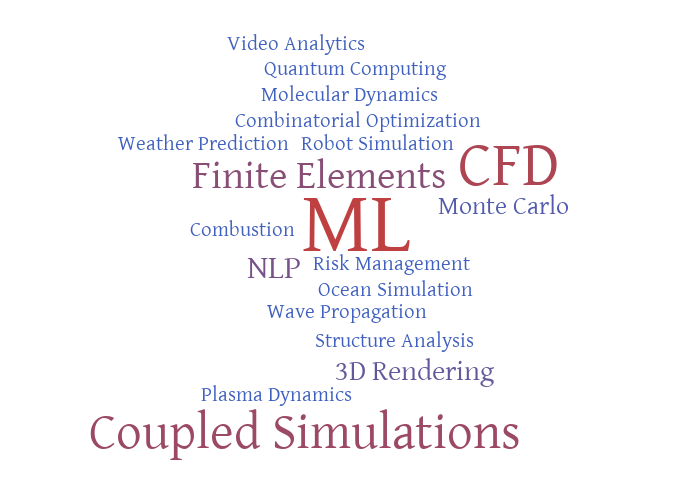
Of the 16 selected experiments, 11 (68%) will use ML techniques in addition to HPC applications and/or services. The selected proposals use the spread and distribution of ML and HPC disciplines as shown below.
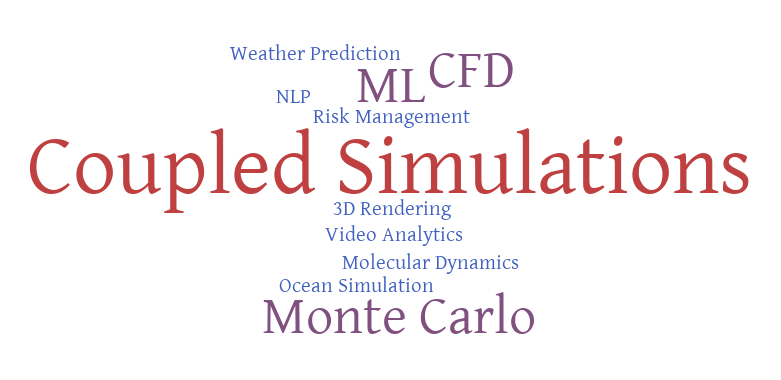
The outcome of the first FF4EuroHPC Open Call for experiments was a success
It did attract a high number of good-quality proposals, with excellent participation of SMEs from several sectors, and a clear focus on Manufacturing as required in the Call documentation. More than half of the proposals did include AI technologies, which shows that the idea of combining HPC and AI to yield better or faster results is catching on. On the HPC side, coupled, multi-physics or multi-domain simulations are used by the majority of selected proposals, showing that this advanced concept is being taken up by industrial end-users.
25 European countries successfully submitted their proposals thus the geographical spread of the proposed and the selected experiments were diverse. To get on board as many great experiments from different countries as possible, the upcoming second Open Call will increase the support for proposers from countries that are not represented amongst the selected experiments of the first Open Call.

